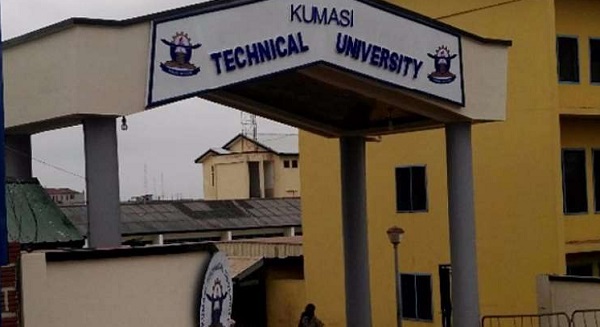
KsTU running programmes on highest standards required by GTEC and CTVET
The Kumasi Technical University (KsTU) has assured its students, potential students and the general public that its programmes were being run upon the highest standards required by the Ghana Tertiary Education Commission (GTEC) and the Commission for Technical and Vocational Education and Training (CTVET).
Advertisement
Reacting to a 2021 Auditor General’s report that stated that 32 programmes were not accredited in 2021, KsTU explained that 16 of the programmes have since been accredited as of now.
The other 16 programmes were however at various stages of the accreditation process.
In a rejoinder to a report filed by Graphic Online from the Public Accounts Committee sitting where the issue of the accreditation came up, Mr Joshua Appiah, the Acting University Relations Officer wrote: “Management of the university states that the headline is misleading since it does not reflect the current situation of accreditation at the university as indicated in the content of the article.
Related article: KsTU runs 32 unaccredited programmes — 2021 Auditor General Report
“KsTU wants to assure its students, potential students and the general public that its programmes are being run upon the highest standards required by the Ghana Tertiary Education Commission (GTEC) and the Commission for Technical and Vocational Education and Training (CTVET),” the university added.
At the Public Accounts Committee sitting
When the Public Accounts Committee (PAC) of Parliament began its sitting in Sunyani in the Bono Region last Monday [Sept 4, 2023] to consider the 2021 Auditor General’s Report referred to the committee, the issue of the accreditation came up.
The PAC said institutions running unaccredited programmes was an issue that affected students negatively when they later applied to pursue higher programmes at other universities.
It, therefore, urged the Ghana Tertiary Education Commission (GTEC) to consider implementing automatic renewals for ongoing programmes, and to speed up their entire processes.
It also charged the commission to embark on regular monitoring to find out how accreditation was implemented in the universities to avoid setbacks for students.
Unacceptable
A member of the committee, Akwasi Konadu, said it was unacceptable for universities to run programmes without accreditation.
He explained that the situation would tarnish the image and credibility of the universities and the acceptability of the certificates that are awarded.
However, responding to the committee, management of the KsTU said the university was doing everything possible to get the 32 programmes accredited, explaining that currently, 16 of them had been accredited, while the other 16 programmes were at various stages of the accreditation process.
The management explained that the accreditation process could take between six months and one year.
An accredited programme took three to five years to expire depending on the type of programme.
Invitation
The Chairman of the PAC, Dr James Klutse Avedzi, said the committee would invite the GTEC and the universities to find a solution to problems related to the delay in renewing or granting accreditation.
“There is the need to bring the two bodies together to look at where the problem is and how we can address it, so we don’t examine students on courses and programmes that don’t have accreditation,” he said.
Dr Avedzi said the issue of running unaccredited programmes at the universities was not limited to the KsTU, but that it was a common phenomenon across the traditional universities in the country.
He said both the universities and GTEC were partly to be blamed for the delay in the granting of accreditation to the programmes being run by the institutions.




